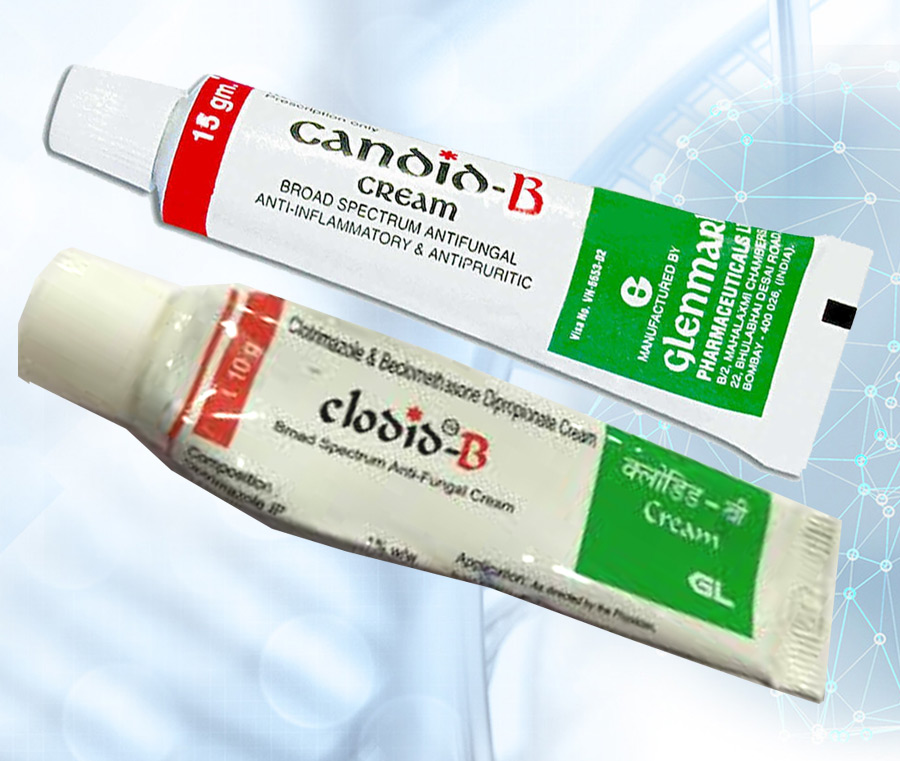The Bombay High Court has pronounced Galpha Laboratories as habitual offender slapping Rs 1.5 crore damages on it for trademark infringement
 Declaring pharmaceutical company Galpha Laboratories a ‘habitual infringer’ of medicinal products, whose trademarks have been registered by other pharma companies, the Bombay High Court has ordered it to deposit
Declaring pharmaceutical company Galpha Laboratories a ‘habitual infringer’ of medicinal products, whose trademarks have been registered by other pharma companies, the Bombay High Court has ordered it to deposit
₹ 1.50 crore towards the Kerala Chief Minister Distress Relief Fund set up for facilitating relief work for the recent floods in that state. The court verdict related to a suit filed by Glenmark Pharmaceuticals against Galpha for ‘infringing’ upon its medicinal cream products.
Glenmark had claimed that the defendant company was selling a medicinal cream ‘Clodid B’ with the same design and pattern as that of its very own ‘Candid B’ cream.
Accepting the arguments and noting that there has been a systematic copy of Glenmark Pharmaceutical’s trademark, Justice SJ Kathawalla observed in the order that pharmaceutical product makers which supply medicines for health of the consumers have a special duty of care towards them. “These companies, in fact, have a greater responsibility towards the general public. However, nowadays, the corporate and financial goals of such companies cloud the decision of its executives whose decisions are incentivized by profits, more often than not, at the cost of public health. This case is a perfect example of just that.”
Charged with Repeat Offences
In the suit it had filed, Glenmark had claimed that Galpha Laboratories was a repeat offender in trademark infringement over the years, and this was not the first instance. Glenmark had also claimed that the defendant had sold the questionable products with the infringed trademark worth approximately
₹ 2.92 crore. The Justice was convinced about this since a few other pharma product makers had also filed cases against Galpha for the offence. In this context, the order stated, “There is, therefore, no doubt in my mind that the Defendant is a habitual offender with a set modus operandi of copying brands of other companies to make profits.”
The High Court also ruled that Galpha’s products do not meet the standards recommended by the FDA regulations and Government authorities, and raised apprehensions over the health of consumers, who were being continually cheated by the company. After continually being sued by a number of other pharmaceutical companies for their IP infringement and even after found guilty thereof, the defendant was impudent enough to continue with production of substandard, and trademark-infringed products.
The High Court found Galpha liable and guilty on both the counts of trademark infringement and substandard production of medicines, and stated that the defendant had set a modus operandi of copying brands of other companies to make profits. It ordered the defendant to pay ₹ 1.5 crore as damages, while restricting it from selling the infringed product. It also directed the defendant to manufacture its products as per FDA regulations and standards.
The High Court initially ordered Galpha to pay the damages to Glenmark, which in turn requested the Court to direct the defendant to pay the sum to any NGO. It was in this context that Justice Kathawalla ordered the defendant to deposit the amount with the Kerala Chief Minister Distress Relief Fund.
As part of his order, Justice Kathawalla stated, “Considering the catastrophe that has hit Kerala recently and the fact that Kerala flood situation is a disaster of serious nature, which has been categorized as Level 3 of disaster by the National Disaster Management Guidelines, Galpha Laboratories should pay the costs of ` 1,50,00,000 as a donation to the Kerala Chief Minister Distress Relief Fund.”
Galpha assured the High Court that that it would not infringe on any other products’ trademark in the future – a plea which was accepted by the court. With the order to pay the damages, the Bombay High Court also directed the defendant to furnish personal undertakings to the Court from all the Directors, stating that they would withdraw and destroy all products with the impugned trademark and its variants from the market; apply for cancellation of manufacturing permission for products bearing the impugned mark; shall conduct business in accordance with FDA rules and regulations and would not indulge in infringing activities with reference to products of not only Glenmark but also, of other pharmaceutical companies.
For this judgment against Galpha Laboratories, the Bombay High Court relied greatly on the judgment that the Delhi High Court had earlier pronounced against the defendant in the Win-Medicare Pvt. Ltd. Vs. Galpha Laboratories Ltd. and others case. The Delhi High court had affirmed Galpha as a ‘habitual infringer’ of other companies’ trademarks, after cases for this very offence was filed against it by companies such as Jagsonpal Pharmaceuticals Ltd., Times Drugs and Pharmaceuticals (P) Ltd. and Smithkline Beecham PLC.
This judgment should go a long way in ensuring that the general public is not at the mercy of fraudulent manufacturers, and also should be a morale booster for those law-abiding and well-intentioned pharma companies who have to approach the Courts to fight for justice when they face challenges like trademark infringements.

